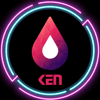Salesforce CI CD is a means of delivering apps to clients on a regular basis by incorporating automation into the stages of app development. Continuous integration, continuous delivery, and continuous deployment are the three key principles associated with Salesforce CI CD. CI/CD is a solution to the issues that new code integration might bring to development and operations teams.
Specifically, Salesforce CI CD adds continuous automation and monitoring across the software lifecycle, from integration and testing through delivery and deployment. These linked processes are commonly referred to as a "CI/CD pipeline." They are supported by agile development and operations teams using either a DevOps or site reliability engineering (SRE) methodology.
Best Salesforce CI CD tools you must know about
Enterprises are shifting toward DevOps approaches and an Agile culture to improve delivery speed and product quality. A continuous and automated delivery cycle is the backbone of DevOps, allowing for fast and dependable delivery.
As a result, effective continuous integration and continuous delivery (CI/CD) tools are required. A "good" Salesforce CI CD tool may leverage a team's existing process to effectively exploit the automation feature and build a reliable Salesforce CI CD pipeline, giving teams the boost they need to succeed.
Here are some of the best Salesforce CI CD tools –
Jenkins
Jenkins is an open-source automation server that facilitates the central build and continuous integration processes. It is a Java-based tool with packages for Windows, macOS, and other Unix-like operating systems. Jenkins helps build, deliver, and automate software development projects with hundreds of plugins.
Key Features:
- Simple installation and upgrade on a variety of operating systems
- The UI is simple and user-friendly.
- Extensible, with a large number of plugins contributed by the community.
- The user interface allows for a simple environment setting.
- Supports master-slave architecture for distributed builds.
- Create schedules using expressions.
- Shells and Windows command execution are supported during the pre-build process.
- Supports build status notifications.
CircleCI
CircleCI is a Salesforce CI CD tool that enables rapid software development and publishing. CircleCI enables automation throughout the user's pipeline, from code creation to testing and deployment.
CircleCI can be integrated with GitHub, GitHub Enterprise, and Bitbucket to generate builds whenever new code lines are committed. CircleCI may also host continuous integration in the cloud or on private equipment behind a firewall.
Key Features:
- It is compatible with Bitbucket, GitHub, and GitHub Enterprise.
- Builds are executed in a container or virtual machine.
- Simple debugging
- Parallelization is automated
- Rapid tests
- Personalized email and instant messaging notifications
- Continuous deployment and branch-specific deployment
- Highly adaptable
- Package uploading with automated merging and custom commands
- Quick setup and limitless builds
- TeamCity
- JetBrains' TeamCity is a Salesforce continuous integration and build management server.
TeamCity is a Salesforce CI tool that assists in developing and deploying various sorts of projects. TeamCity is a Java application that connects with Visual Studio and other IDEs. The program supports.NET and open-stack applications and may be installed on Windows and Linux systems.
TeamCity 2019.1 has a redesigned user interface as well as native GitLab integration. It also accepts server pull requests from GitLab and Bitbucket. Token-based authentication, detection, and reporting of Go tests and AWS Spot Fleet requests are all included in this release.
Key Features:
- Allows you to reuse settings and configurations from the parent project in the subproject in various ways.
- Runs concurrent builds on many environments at the same time.
- Running historical builds, examining test history reports, pinning, labeling, and adding builds to favorites are all possible.
- The server is simple to customize, interact with, and extend.
- Maintains the CI server's functionality and stability.
- Flexible user administration, user role assignment, grouping users, several methods of user authentication, and a log of all user activity for transparency of all server activities.
Bamboo
Bamboo is a continuous integration server that automates software application release management, resulting in a salesforce continuous delivery pipeline. Bamboo handles building and functional testing, versioning, marking releases, and deploying and activating new versions in production.
Key Features:
- Up to 100 remote build agents can be supported.
- Run parallel batches of tests to gather feedback rapidly.
- Creates photos and stores them in a registry.
- Per-environment rights allow developers and testers to deploy to their environments on demand while keeping production secure.
- Detects new branches in Git, Mercurial, and SVN repositories and automatically applies the main line's CI scheme to them.
- Triggers are created based on changes noticed in the repository. Notifications from Bitbucket, a predefined schedule, the completion of another build, or any combination thereof are pushed.
GitLab
GitLab is a toolkit for managing several areas of the software development lifecycle. The primary product is a web-based Git repository manager that includes features like issue tracking, analytics, and a Wiki.
With each change or push, GitLab allows you to trigger builds, run tests, and deploy code. Jobs can be created on a virtual machine, a Docker container, or a different server.
Key Features:
- Using branching tools, you may see, create, and manage codes and project data.
- Design, develop and manage code and project data using a single distributed version control system, allowing for quick iteration and delivery of business values.
- Provides a single source of truth and scalability for project and code collaboration.
- Aids delivery teams fully embrace CI by automating source code builds, integration, and verification.
- Container scanning, static application security testing (SAST), dynamic application security testing (DAST), and dependency scanning are all available to help develop safe applications while also ensuring license compliance.
- Aids in the automation and shortening of application releases and delivery.
Buddy
Buddy is a Salesforce CI CD platform that creates, tests and delivers websites and applications using code from GitHub, Bitbucket, and GitLab. It builds on Docker containers with pre-installed languages and frameworks, as well as DevOps, monitoring, and notification.
Key Features:
- Simple to personalize Docker images as a testing environment
- Intelligent change detection, cutting-edge caching, parallelism, and overall optimizations
- Build and test environments can be created, customized, and reused.
- Plain and encrypted scopes, fixed and programmable: workspace, project, pipeline, actions
- Attachable Elastic, MariaDB, Memcached, MongoDB, PostgreSQL, RabbitMQ, Redis, Selenium Chrome, and Firefox services
- Monitoring includes real-time progress and logs, as well as an endless history.
- Workflow administration with templates for cloning, exporting, and importing pipelines.
- Excellent Git support and integrations
Travis CI
Travis CI is a continuous integration service used to develop and test projects. Travis CI automatically identifies and pushes new contributions to a GitHub project. And Travis CI will build the project and run tests after each new code commit.
The tool supports a wide range of build configurations and languages, including Node, PHP, Python, Java, Perl, and others.
Key Features:
- Simple setup
- Monitoring live build views for GitHub projects
- Support for pull requests
- Multiple cloud services deployment
- Database services are already installed.
- Auto deployments based on successful builds
- Clean virtual machines for each build
- macOS, Linux, and iOS are all supported.
Supports a variety of programming languages, including Android, C, C#, C++, Java, JavaScript (with Node.js), Perl, PHP, Python, R, Ruby, and others.
This list comprises the most popular Salesforce CI CD tools of 2022. We hope that this list has provided you with enough information to select software that best meets your needs. The Salesforce CI CD tools in this list are mature and have the necessary capabilities for your projects. Your requirements, existing infrastructure, and possibilities for future potential and improvement will all influence your final decision.






Top comments (0)